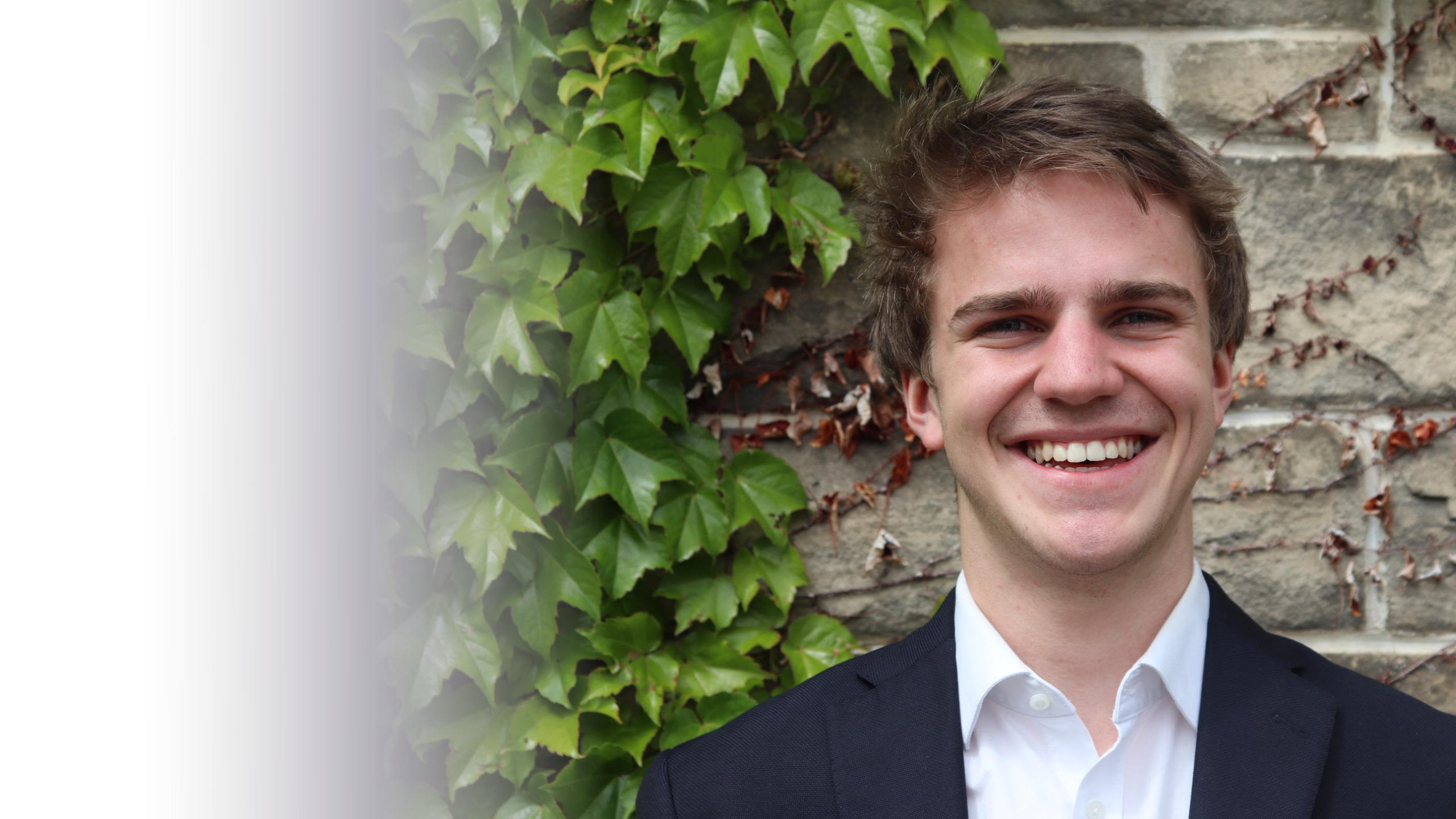A different kind of college experience
Students studying in our three divisions during the COVID-19 pandemic had a different experience to most of the students who have come through Trinity.
Four students reflect on what it was like to be at Trinity during those challenging years.
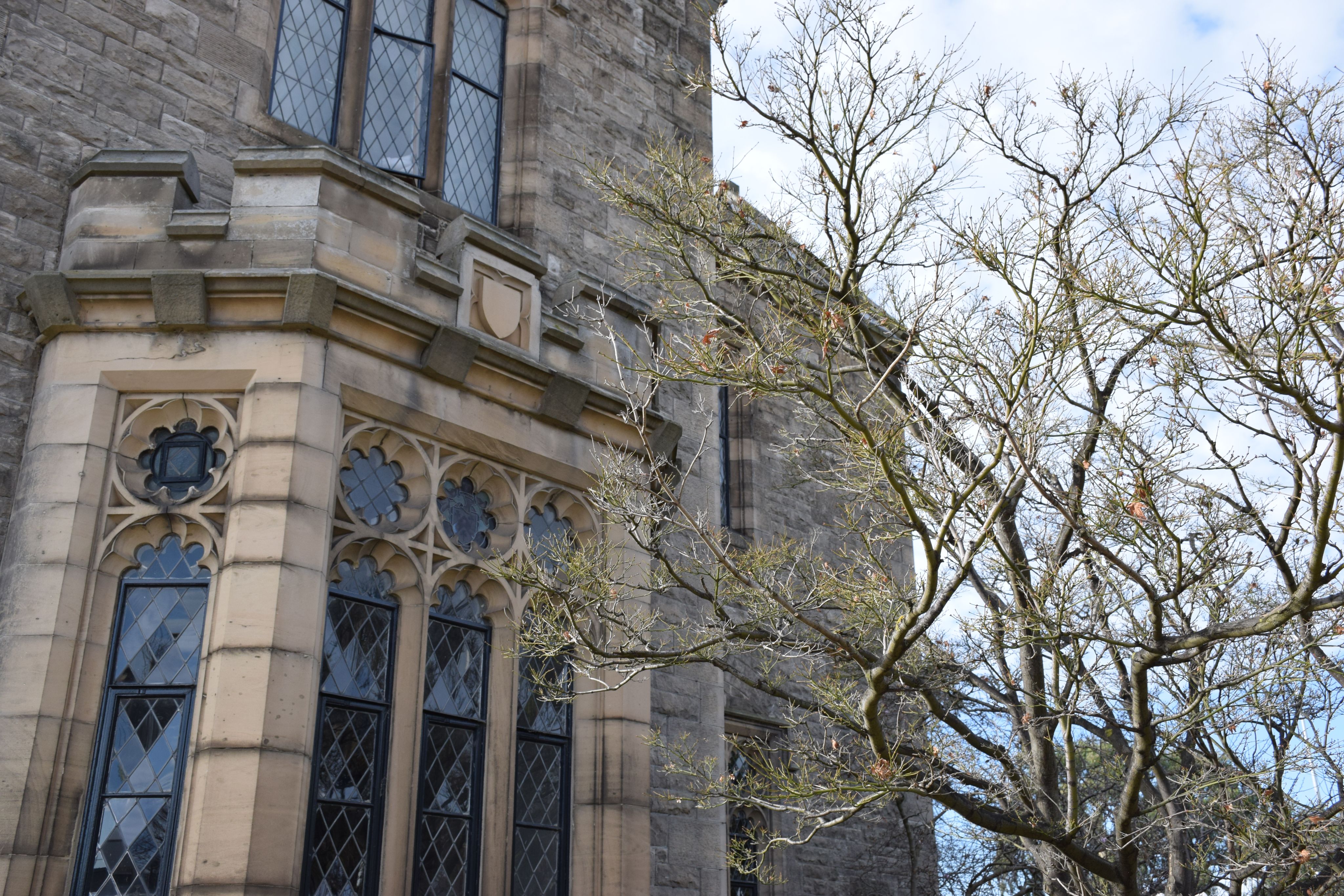
PATHWAYS SCHOOL
Anya Arora, Foundation Studies student
When the pandemic hit, I was in my home country of Botswana. I remember there were a lot of rumours that we would go into lockdown and, at that time, everyone was kind of relieved, because school work was picking up and everyone was stressed. We all thought a two-week break would be fun.
But after two weeks had passed, everyone, including myself, became even more stressed. It was apparent that this virus wasn’t going to pass quickly.
My original plan was to start my Foundation Studies course at Trinity in February 2021, but there was hope that international borders would be open by June, so I decided to postpone. Unfortunately, the borders were still closed mid-year, so I had to go ahead with my Foundation Studies course online in July.
Despite the fact I studied online, I really enjoyed my time at Trinity. I made quite a few friends as there was a lot of group work and class discussion that let me interact with new people. The teachers were also extremely supportive and went out of their way to help me.
The time zone difference was my biggest challenge. All my classes were held between 2am and 8am in Botswana, so it was really hard in terms of time management and trying to have a balanced schedule with little sleep.
I completed my entire course online but was able to travel to Melbourne right at the end for some exams. One of the first things I did when I got to Melbourne was meet up with the people I had interacted with online, including my teachers.
Looking back, I don’t feel like I missed anything. Ideally, I would have loved to have physically been at Trinity, but I never felt I wasn’t involved in student culture or didn’t get the true experience. It was a different experience on its own and I enjoyed my time.
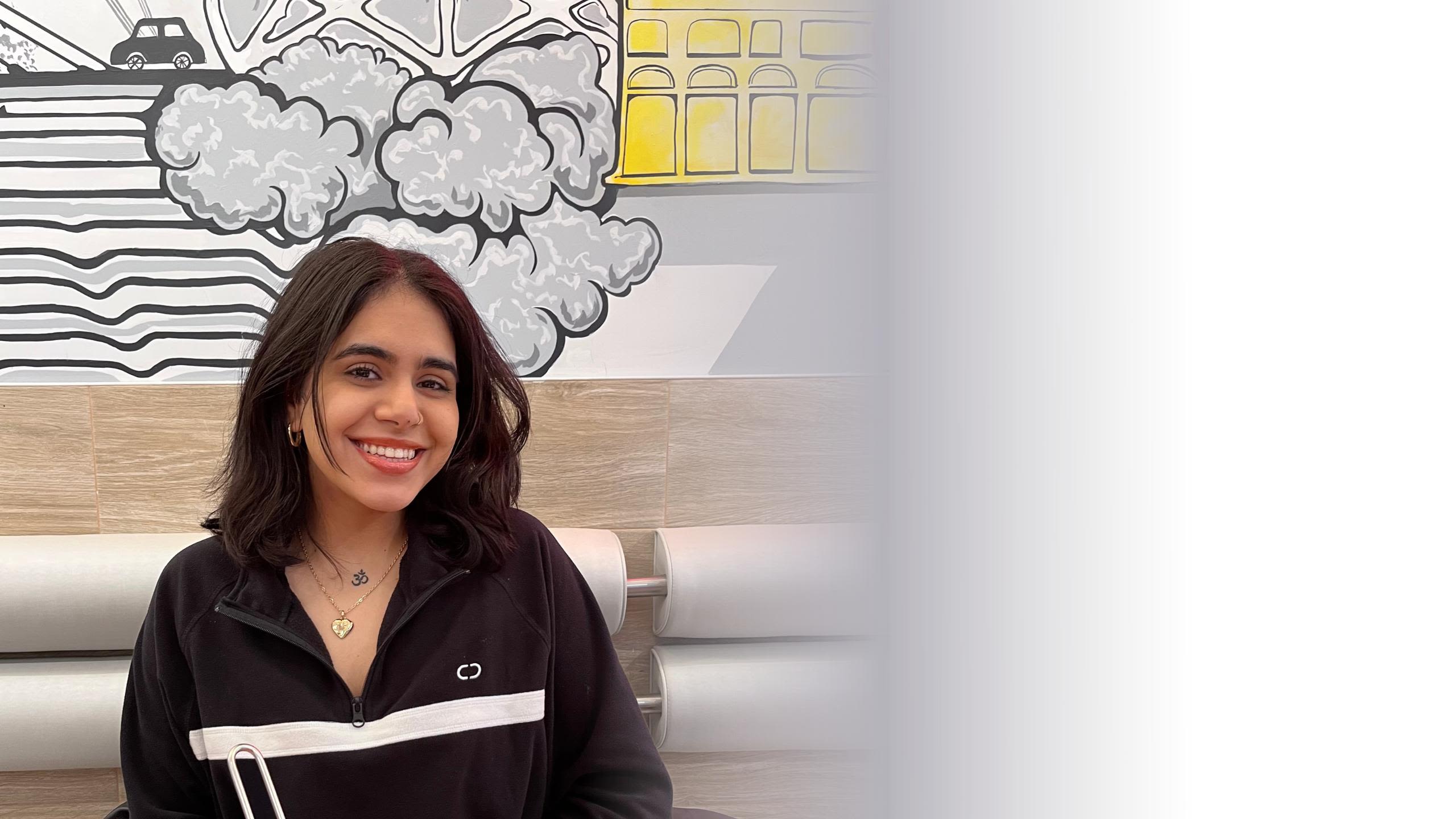
THEOLOGICAL SCHOOL
Cara Greenham Hancock, Theological School Student Body President
I began my studies at Trinity mid-year in 2019 as a full-time, face-to-face student. My initial enrolment was for a Graduate Diploma in Theology, although, as I fell in love with theological study, it evolved into a Master of Divinity.
My initial relationship with the school, before I enrolled to study, was through attending the Monday Eucharist in the chapel and joining the faculty and students for refreshments afterwards.
I was struck by the strong sense that this was more than ‘just’ an academic institution: that it was a community of people dedicated to praying and working alongside each other, learning together and from one another.
When we had to switch to online learning midway through the first semester of 2020, it was the sense of community I most missed. The provisions made by the school were excellent, and I am deeply grateful to the faculty and staff for their hard work as they navigated an unprecedented situation, but there is no way to truly replicate gathering in the chapel, common room or courtyard in an embodied way.
The classroom experience, too, was very different, with all our study shifted online. I began to resent the number of hours each day I stared at my laptop screen. Without access to the library’s physical collections, my readings were always as PDFs or ebooks. Rather than working with my Greek classmates to quiz each other on vocab, I downloaded flashcard apps on my phone and laptop.
Screens, screens, screens – my eyes and head would start to ache, and I found it harder to focus.
In Zoom classes, one thing I didn’t expect was that I was less willing to ask questions of my teachers, not wanting to have all attention on me and use up class time, whereas when studying face-to-face it’s very easy to ask clarifying questions before or after the formal group class, and conversation flows much more naturally and productively.
The Theological School continued to gather each day for morning prayer via Zoom, but I didn’t join in, feeling maxed-out with how much screen time I could bear, instead praying alone or with my housemates.
I am full of gratitude for the way Trinity carried on its life as best it could during lockdown, but there were months marked by loneliness and exhaustion for myself and many others.
Now that, blessedly, we are on campus, I am more consciously grateful for these parts of Trinity life, and in my role as student president I have been intentional in trying to foster a sense of community and shared learning outside of the classroom as well as inside it.
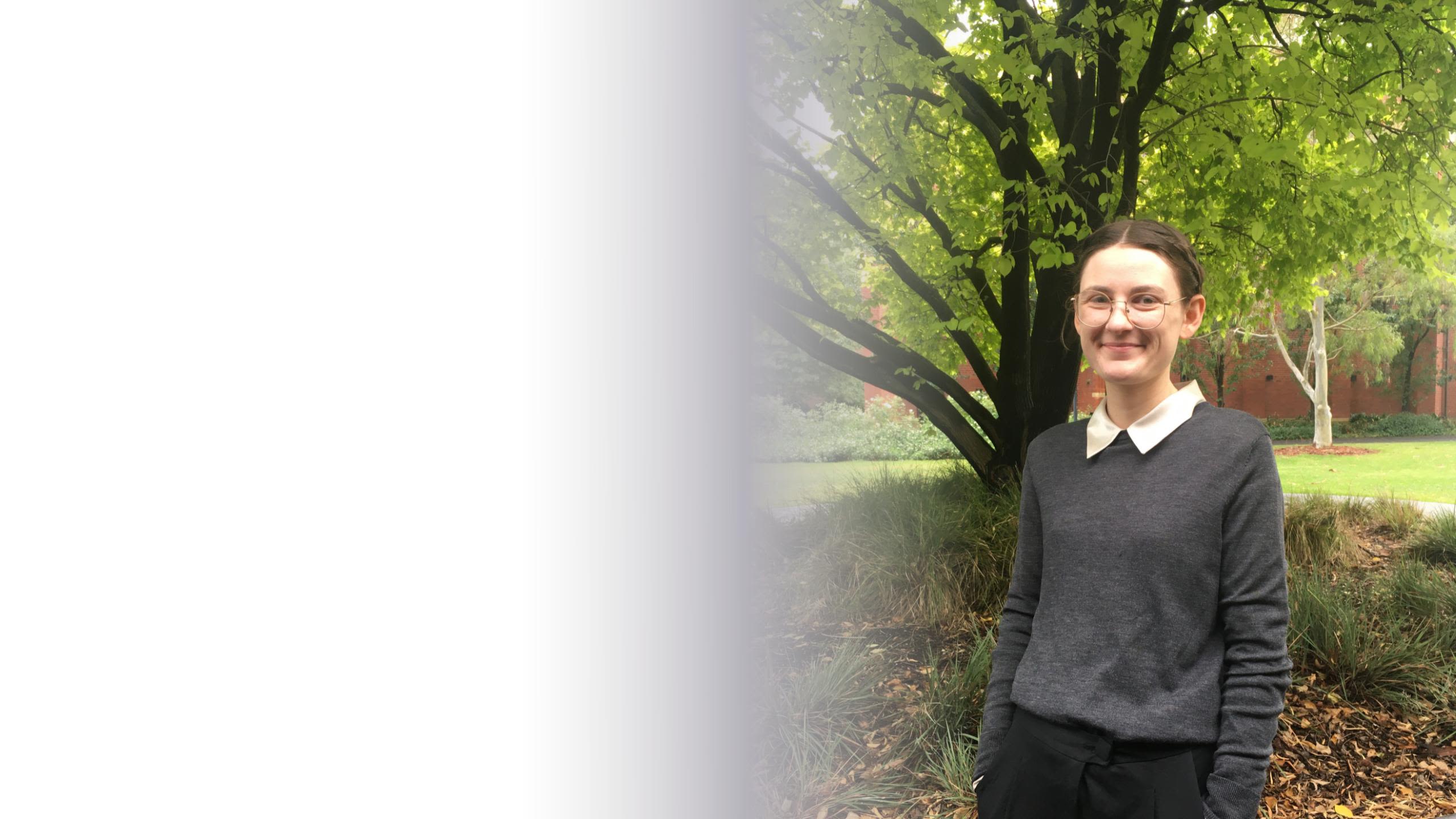
RESIDENTIAL COLLEGE
Morgan Galea, Senior Student 2020
The first time I heard of COVID-19 was in February 2020 while on the Trinity student volunteer trip to India, supporting the Asha Foundation. As we arrived in Mumbai, reports of a new ‘super virus’ were circulating, with some reports stating cases had been detected in Mumbai. As a precaution, we purchased N95 face masks for the return flight to Melbourne.
At the time, none of us could have imagined the disruption this new virus was going to impose on our lives and the chaos it would create for college life. I remember while flying back to Melbourne, one of my friends said it was only a matter of time before major cities across the world would adopt a state of lockdown. We laughed, dismissing the doomsayer's theory.
Of course, it turns out they were right.
From my first year at College, I always saw the student leaders as bubbly, happy, social figures who were always promoting college life and introducing fun and exciting new initiatives to better the student experience.
The thought of being the student leader at a time when Trinity had to be stripped down to its primary function of providing student accommodation – taking away all the partying, arts, social initiatives and community and cultural events – painted a pretty bleak picture for me (or so I thought).
I remember my first meeting with the Deputy Dean as the Senior Student in 2019 – pre-pandemic – consisted of approving ‘corri-crawl’ themes, as well as discussing the number of community service hours a student should serve for squashing a rose bush.
When COVID-19 reached Melbourne in 2020, I remember Dean Leonie Jongenelis telling me she was going to hold an emergency College meeting, the likes of which the College hadn't experienced since wartime.
The first meeting the TCAC had with the College administration after that, when we were told the College would be going into lockdown and the year’s social calendar would be scrapped, has stayed with me. The look of dismay among my friends’ faces was the look of children who’d watched their ice-creams roll off a cone and squelch onto the pavement.
Despite all the anxiety, fear and dismay entering lockdown, there was a beat of excitement among the student body. I believe this sentiment was cultivated predominantly among the first-year cohort, who had never experienced College before.
For these innocent freshers, the ‘opportunity cost’ was non-existent compared to other students (many of whom were in their final year at Trinity).
At the time, I felt very fortunate that we were able to execute our 2020 O-Week unimpaired by COVID-19, enabling us to set the tone of college life and hopefully contribute to a culture that was immune to the woes of a global pandemic.
There was no doubt college life was different, with rules in place preventing students from congregating in groups larger than three. However, the student body adopted a glass-half-full attitude and found ingenious ways of reinventing college life so that it was lockdown fit for purpose.
We held our own ‘Trinity Survivor’ contest, corridor Uber Eats dinners, El Corono and running clubs, and set up a TCAC shop with essential supplies.
Looking back, lockdown life at Trinity helped me develop my stakeholder management skills. There were times I felt like all I was doing was delivering bad news to students or having tough conversations with the College administration about how rules were impacting the student experience.
But from the highs and lows of COVID-19, I quickly learnt that a proactive response to bad news can help manage stakeholder expectations, and not to dwell on things outside of your control.
Ultimately, I believe my final year at College was instrumental in helping me to forge key personal and professional skills that hold me in good stead to this day.
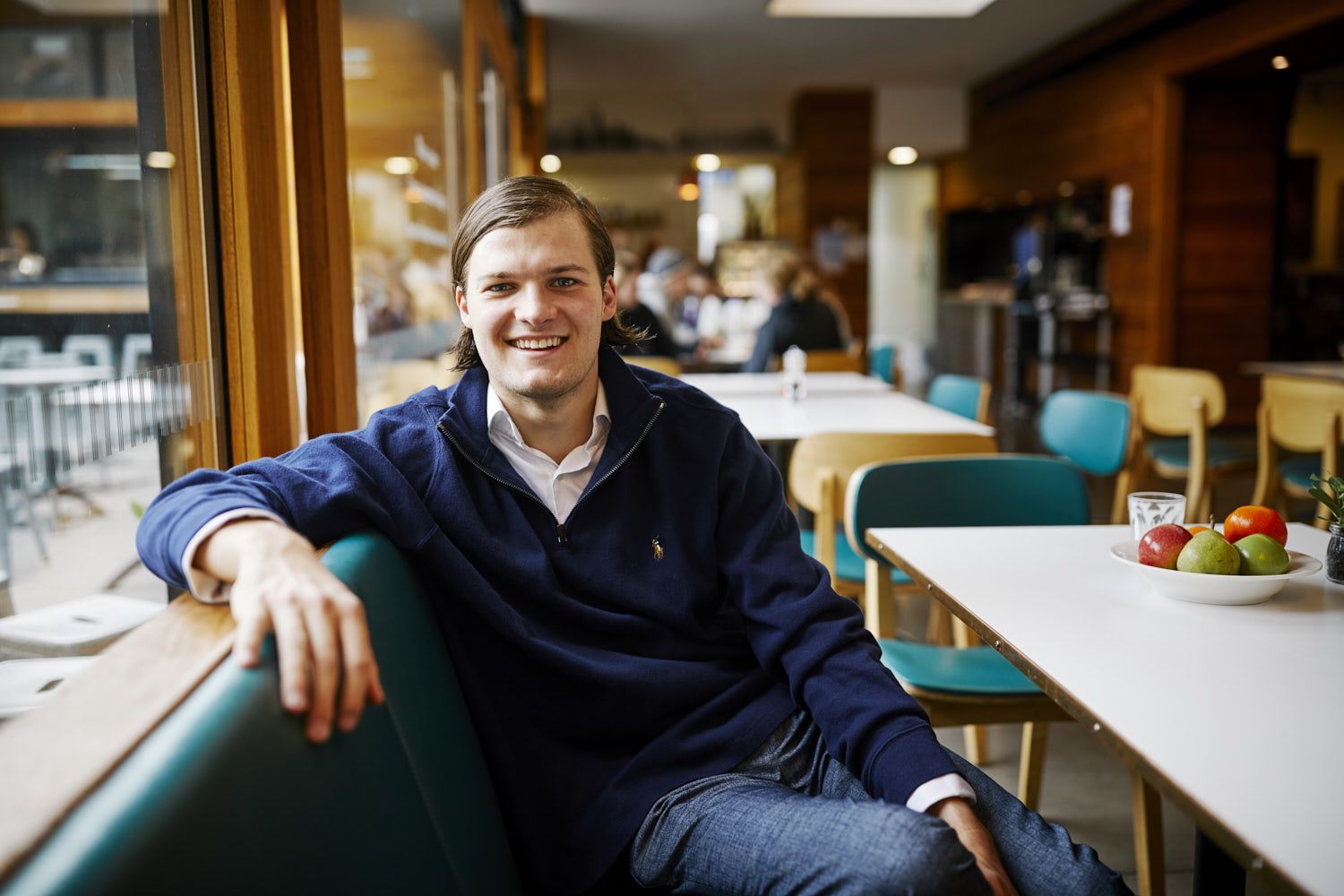
Oscar Hollands – Senior Student 2021
Like most, my first memory of the pandemic was hearing news reports of an alarming virus in Wuhan, China. I remember watching an interview with a teacher who was in isolation there and thinking about how alien and strange quarantine must feel for them. My thoughts quickly turned to what movie I was going to watch that night.
During our first few weeks of College, announcements were made reminding everyone to be mindful of hygiene – wash our hands, not share toothbrushes, stuff like that.
I thought it was a bit excessive; there was no way a virus was going to interrupt the Games Society’s big plans for 2020 (which, as president, I was keenly anticipating).
Within a week, we were sitting socially distanced on the Bulpadock on a cold, grey day as our Dean, Leonie, delivered the speech that I’m sure every 2020 College resident will remember clearly.
When she said ‘this is our war’ in an effort to emphasise the gravity of the situation, that was when the penny dropped for most people, including myself; it was not going to be a normal year at college.
I started my role as Senior Student in September 2020 when Melbourne was very much in lockdown, but as we entered 2021, restrictions started to ease. The TCAC and I were excited that College would soon return to full swing.
As it turned out, 2021 would see us in and out of lockdown, with me handing over the Senior Student role to Paddy Bates just as I had received it from Morgan Galea – over Zoom.
Fortunately, however, the trials and tribulations that COVID presented us with in 2021 were ones that we had all been facing for a year by then, so we were prepared and ready when they came. I have huge respect for Morgan and his TCAC for the way they improvised and kept the College together in 2020 during an unprecedented and difficult situation.
It was still an incredibly challenging exercise in improvisation and interpreting the government-mandated rules in the context of a residential college with 300-plus people both on and off campus.
At various times, some residents were living at home and wanted to come back to College, but couldn’t, while some residents were living at College and wanted to go to their home overseas or interstate, but couldn’t.
Everything was in a constant state of flux.
I decided to return to my family home in Scone, NSW, for the June 2021 break and ended up staying when Melbourne went back into lockdown in July. It would have been a strange choice to travel back into the fire and flames of a Melbourne lockdown when all of my uni courses were online and I could leave the house at leisure in Scone, where restrictions were less strict.
This time away gave me insight into what it was like to be a member of the Trinity community. Like every other community around the world, we had to adapt.
Social events and activities were run online. Tutorials were run online. The corridor you were on became your ‘family group’ and communal spaces had to be booked so that only one family group would venture in at a time.
Trinity should not really have worked online. At other colleges around Australia, communities fell apart and many opportunities to make memories were lost as a result of the pandemic. Yet, somehow, in the face of COVID, Trinity’s culture triumphed because of its spirit and sense of togetherness that most people reading this know very well.
The pandemic certainly proved that, while we have pretty buildings and our gardeners do a very good job on the flowers, Trinity is ultimately its people, not its place.
The pandemic was a strange time to be a Trinity student, but I have so many fond memories of those years at College, and I will always be grateful that I got to spend my lockdowns – both online and in person – among such a vibrant community of people.
>>> READ NEXT: CRAVING CONNECTION
